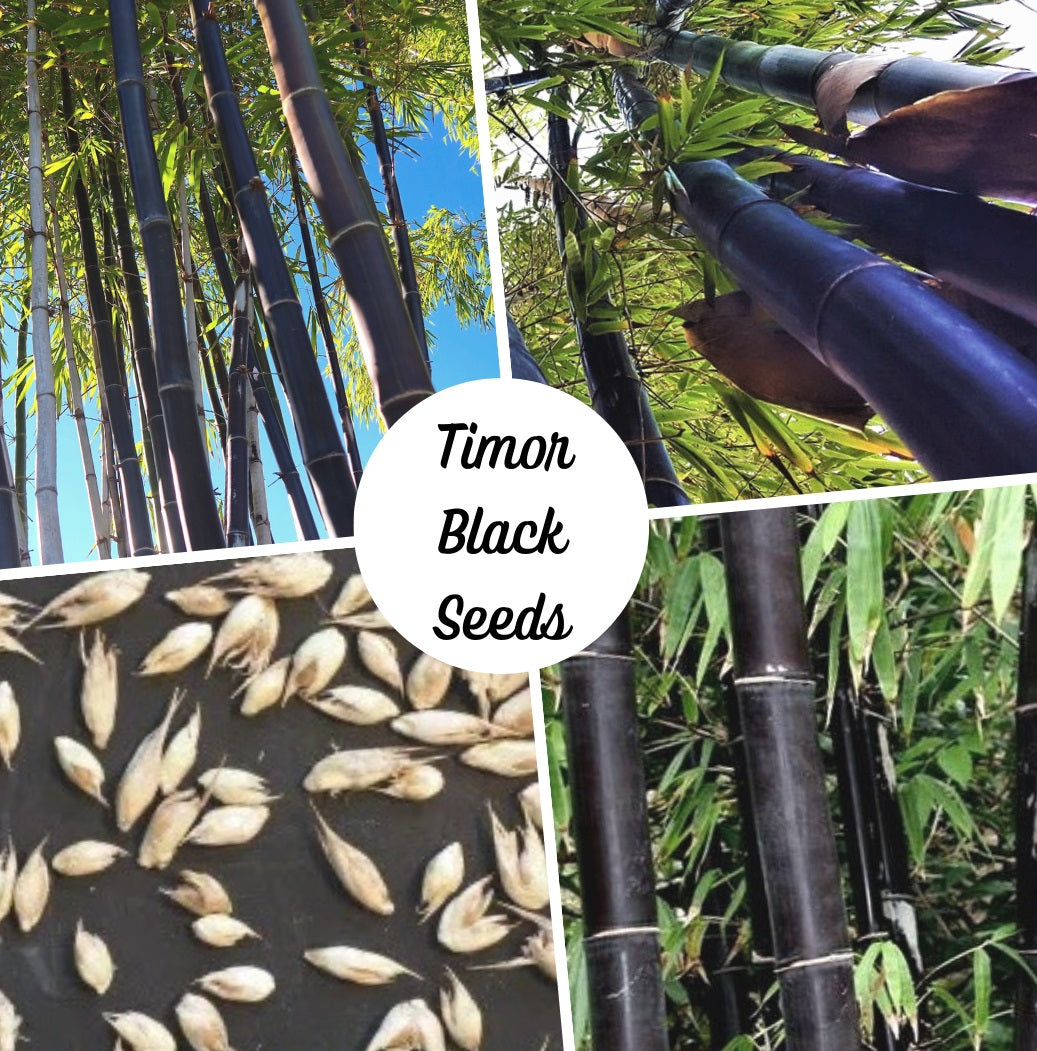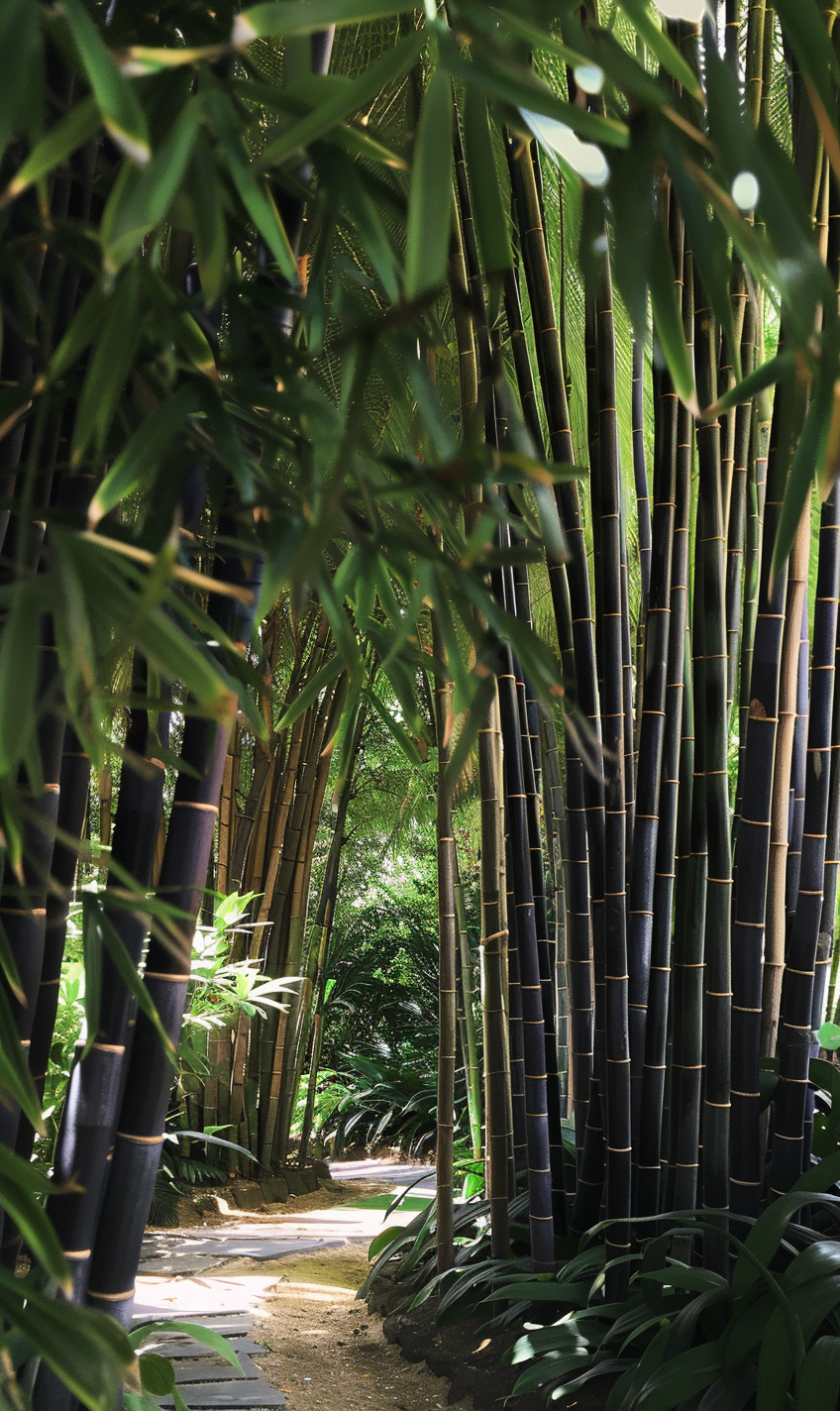The Bamboo Seed
Black Bamboo Seeds - Timor Black Bamboo Seeds - Bambusa Lako Timor bamboo seeds
Black Bamboo Seeds - Timor Black Bamboo Seeds - Bambusa Lako Timor bamboo seeds
Couldn't load pickup availability
Timor Black Bambusa lako Bamboo Seeds for Sale
- Specialty seeds, limited quantities
- Quantity 10 Timor Black Bamboo Seeds
- USDA Hardiness Zones: 10-12
- Tropical bamboo seeds
- Clumping bamboo seeds
- Non invasive bamboo seeds
- Black bamboo seeds
-
Flat rate shipping
Bambusa lako Timor Black Bamboo
Bambusa lako, known as Timor Black Bamboo, Purple Bamboo, or Timor Giant Bamboo, is a large and vigorous species of clumping bamboo native to Indonesia, specifically the island of Timor which is located in Southeast Asia. This bamboo plant is a member of the Bambusa genus, which is the largest genus of bamboo, and is known for its thick, sturdy culms and dark color.

Characteristics and Growth Habits of Bambusa lako Bamboo
Size and Shape: Bambusa lako is a tall, thick-stemmed bamboo that can grow up to 30 meters (98 feet) in height and up to 15 centimeters (6 inches) in diameter. The stems are usually straight and symmetrical, with a dark green or blackish color and thin walls.
Leaves: The leaves of Bambusa lako are long and narrow, usually around 20-40 centimeters (8-16 inches) in length and 1-2 centimeters (0.4-0.8 inches) in width. They are dark green and have a pointed tip, with a waxy coating that helps to protect them from water loss.
Growth Rate: Bambusa lako is a fast-growing species of bamboo, capable of growing up to 1 meter (3 feet) per day under ideal conditions. However, its growth rate can be affected by factors such as soil quality, climate, and available water.
Climate Requirements: Bambusa lako thrives in warm and humid climates, and can tolerate temperatures between 0-40°C (32-104°F). It is also relatively drought-tolerant, but prefers well-drained soils and regular watering.

Uses: Bambusa lako is a highly valued bamboo species for its strength, durability, and versatility. It is commonly used for construction, furniture, handicrafts, and as a food source for pandas and other animals.
Propagation: Bambusa lako can be propagated from seeds, rhizome cuttings, or division of established clumps. It is important to note that this species can be invasive and should be planted with caution in areas where it may spread uncontrollably.
Overall, Bambusa lako is a striking and hardy species of bamboo that can add both aesthetic and practical value to a variety of settings. However, its large size and potential for invasiveness mean that it should be planted with care and consideration for the surrounding environment.

Origins and History of Timor Black Bamboo
The history and origins of Bambusa lako are closely tied to the cultural and economic history of the Timor region. For centuries, the people of Timor have relied on bamboo for a wide range of uses, including construction, furniture-making, and tool-making. In particular, the thick, sturdy culms of Bambusa lako were highly valued for their strength and durability, making them a popular choice for building homes, bridges, and other structures.
Over time, the popularity of Bambusa lako and other bamboo species from Timor spread beyond the island itself, as traders and travelers carried the plant to other parts of the world. Today, Bambusa lako is cultivated in a number of countries, including Indonesia, the Philippines, and Australia, where it is used for a variety of purposes, including construction, furniture-making, and as a decorative plant in gardens and landscaping.

Despite its popularity, Bambusa lako faces a number of threats in its native habitat, including deforestation, habitat loss, and over-harvesting. To protect this important species, efforts are underway to promote sustainable harvesting and cultivation practices, as well as to raise awareness of the value of bamboo to the local economy and culture.
Bambusa lako Bamboo Appearance
Bambusa lako, known as Timor black bamboo or Timor Bamboo, is a large species of clumping bamboo originating from the island of Timor. It's a visually dramatic addition to any garden landscape with its lustrous black branches and deeply pigmented foliage.

Particularly appreciated for its foliage, bamboo gardeners consider Timor black bamboo to be one of the most beautiful of all the bamboos, because of the shiny black culms that look like they are polished ebony. The shiny dark brown/black culms with bushy dark green foliage have a curl shape at the top and minimal branching down low, 4” in diameter. New shoots emerge green initially, and then over the next 6 to 9 months they transition to black. However, the black culms will then fade into a white/grey color as they die off.
With deep purple almost black culms, with faint green stripes. Black Timor Bamboo has low branches and green leave sheaths.
The characteristic black culms of black Timor Bamboo may reach 21 m (69 ft) in height. Bambusa lako can only be grown in climates that are mostly frost free.

Timor Black Bamboo Traits
- Height: 70 feet
- Max. Diameter: 4"
- Hardiness: 5° F (-15° C)
- Light: Partial Shade / Full Sun
- Common Name: Timor Black Bamboo
- Scientific Name: Bambusa lako
- Family Name: Poaceae
- Origin: Indonesia (Asia) - Lesser Sunda Islands
- Height: it can grow up to 70’ in the tropics but is usually 40’ – 60’
- Width: 8’ – 10’
- Growth: slow to moderate - but can still mature to full growth in 3-4 years if established well.
- Zone: 9B - 11
- Light Needs: Full Sun
- Salt Tolerance: moderately tolerant to salt spray
- Soil/PH/Texture: likes soil that is acidic – neutral (pH 5.6 – 7.5) apply all-purpose fertilizer monthly during the spring and summer.
- Soil Moisture: likes to have consistently moist soil, water regularly, but if it is left in standing water for any length of time will rot the rhizome of the plant and cause it to die (rot root).
- Drought Tolerance: when mature it is somewhat drought resistant (less water causes stunting in growth)
- Pests/Diseases: virtually disease and pest resistant except for the occasional scale insect.
- Growing Conditions: easy to grow and low maintenance, they are known for being a clumping variety and so you do not have to worry about them spreading and taking over your yard.
- Propagation: by dividing the root ball, rhizomes, tubers, bulbs, or offsets
- Wildlife: unknown
- Facts: unknown
- Designer Considerations: use as a border plant, privacy screen, hedge, focal specimen plant, or as a container plant on your patio or deck
Non-invasive Clumping Timor Black Bamboo
Planting clumping bamboo in the garden offers several advantages, including its non-invasive growth habit, which prevents it from spreading uncontrollably and makes it easier to manage. Clumping bamboo grows in tight clusters, making it an ideal choice for creating dense privacy screens or hedges without the risk of it taking over the garden. Its lush, evergreen foliage provides year-round beauty and can add an exotic, tropical feel to the landscape. Additionally, clumping bamboo is generally low-maintenance, requiring minimal care once established, and is resilient to pests and diseases, making it a durable and attractive addition to any garden.
More About Bambusa lako Bamboo Seeds
Bambusa lako grows to 21 m (69 ft) in height, with culms reaching a maximum of 10 cm (3.9 in) in diameter. The Timor Black Bamboo culms are initially green before maturing to a shiny black, sometimes with scattered green stripes; they grow vertically, though may droop at the top. The culms are initially covered with culm-sheaths which have dark brown-black hairs. Timor Bamboo shoots grow rapidly in warmer weather. The branches are short and leaves long and pendulous; individual leaf-blades may reach 25 cm (9.8 in). To date, this species has not been observed in flower.
Distribution, habitat and cultivation
Timor black bamboo originated on the island of Timor. It has been introduced into cultivation to the United States and Australia, and is hardy to −4 °C (25 °F).
Clumping bamboo seeds grow into Timor Bamboo plants with 57' - 3.5" culms.
Closely related to Gigantochloa atroviolacea. A 2000 molecular study places it as closely related to the similar Indonesian species Gigantochloa atroviolacea, from which it was separated in 1997; it may soon be placed in that genus.
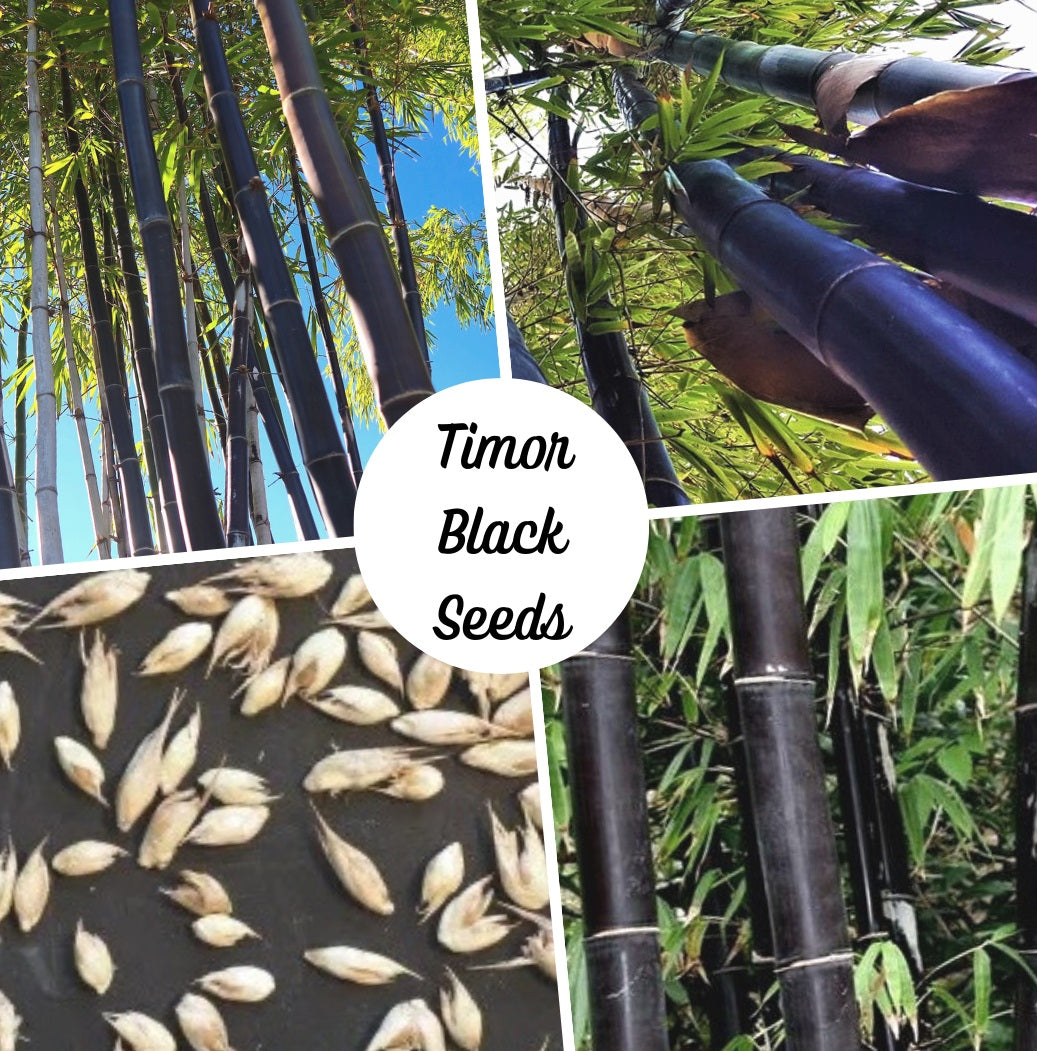
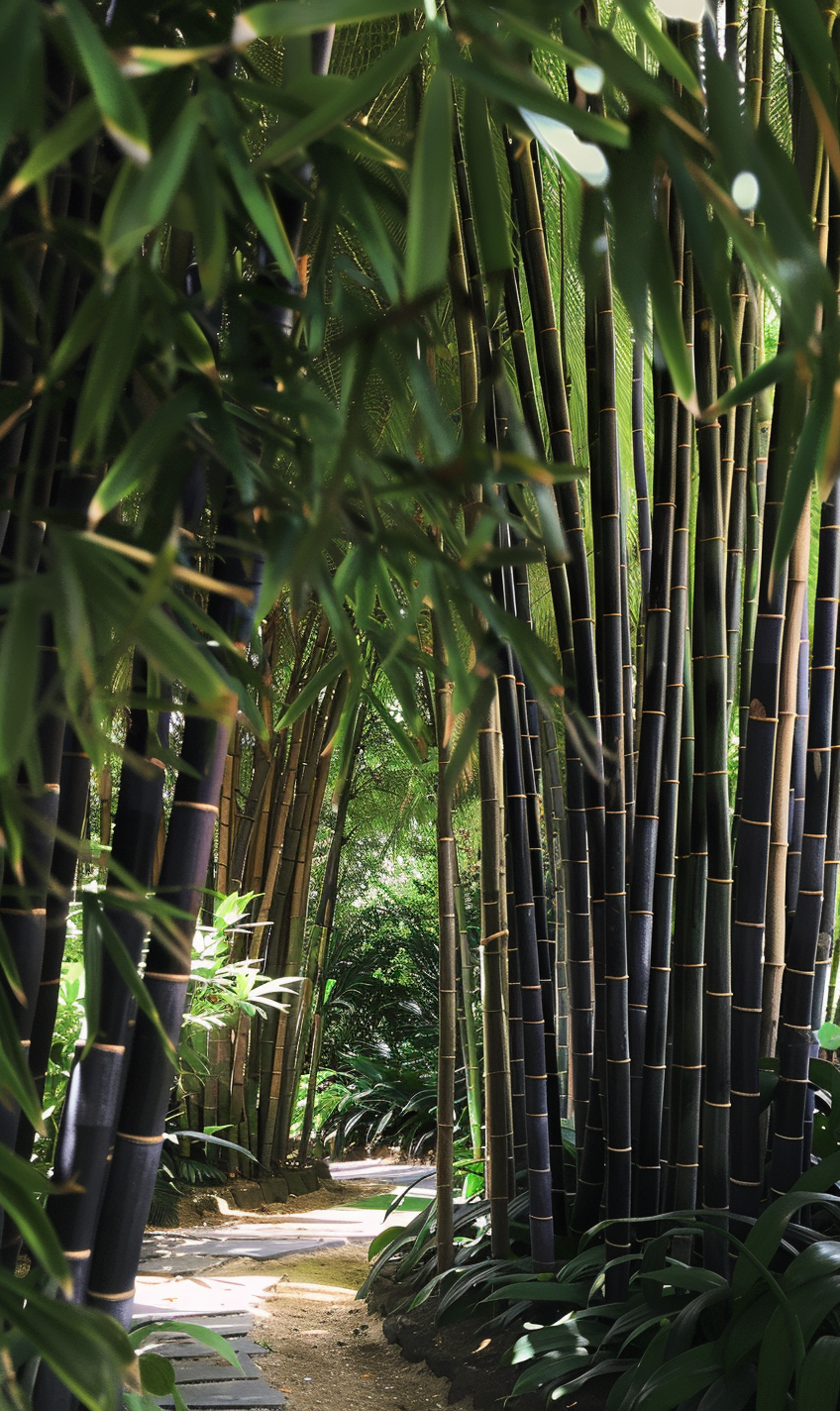
Collections
-
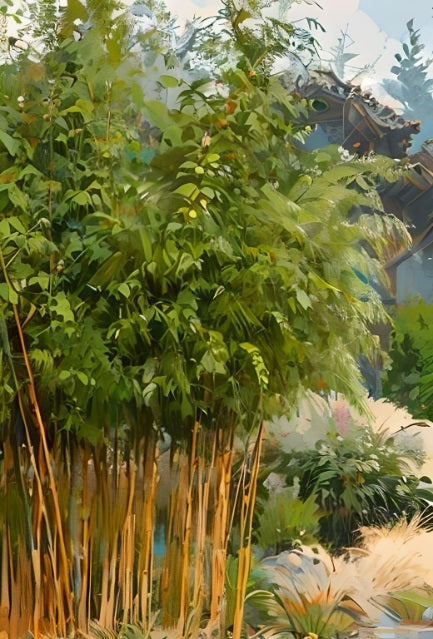
All Bamboo Seeds for Sale
Welcome to our catalog of bamboo plant seeds for sale including clumping...
-
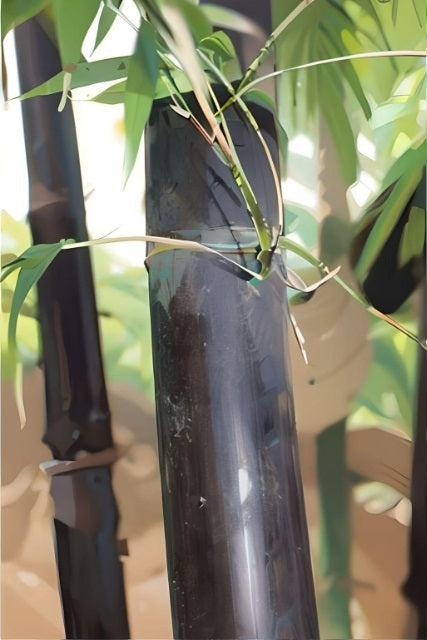
Black Bamboo Seeds
Consider Black Bamboo seeds for eye-catching bamboo varieties with lustrous black, dark...
-
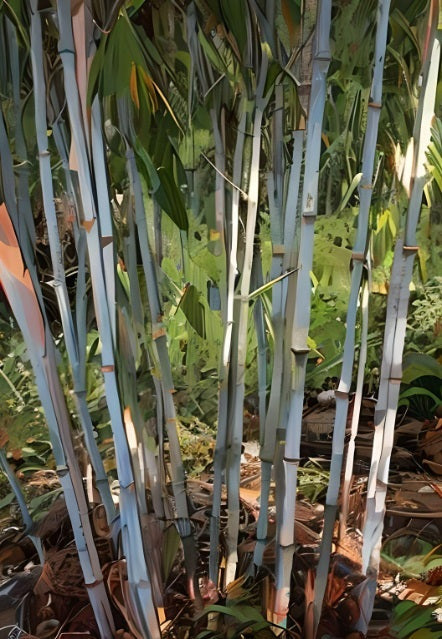
Clumping Bamboo Seeds
Clumping bamboo species grow in dense clumps or clusters that are naturally...
-
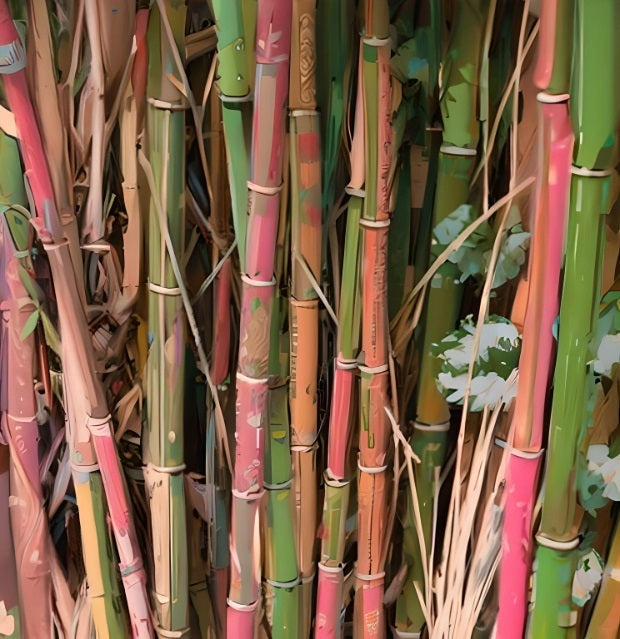
Cold Hardy Bamboo Seeds
A selection of cold resistant bamboo seeds for hardy bamboo able to...
-
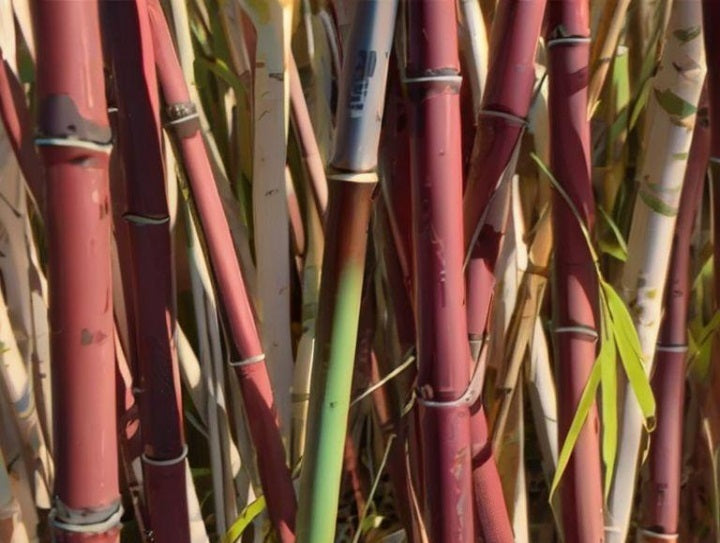
Fargesia Bamboo Seeds - Clumping and Cold Hardy
Buy bamboo seeds for beautiful cold hardy and clumping Fargesia bamboo. Our...
-
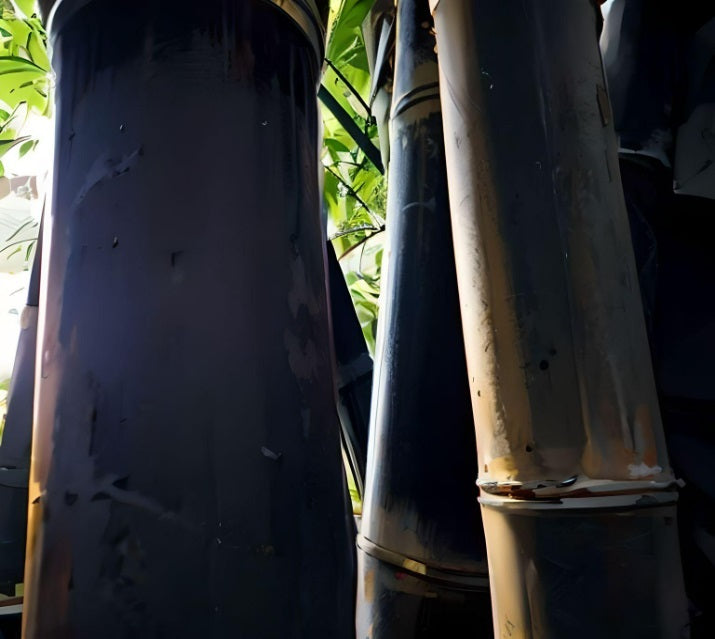
Giant Bamboo Seeds
When you're looking for impressive size with ample shade below, consider fastest...
-
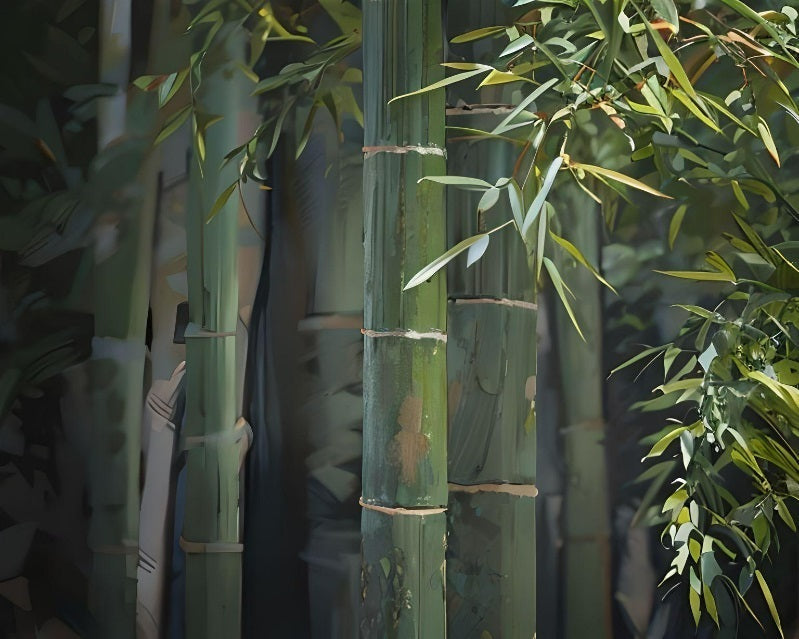
Running Bamboo Seeds
Running bamboo spreads through underground runners, known as rhizomes. These rhizomes can...
-
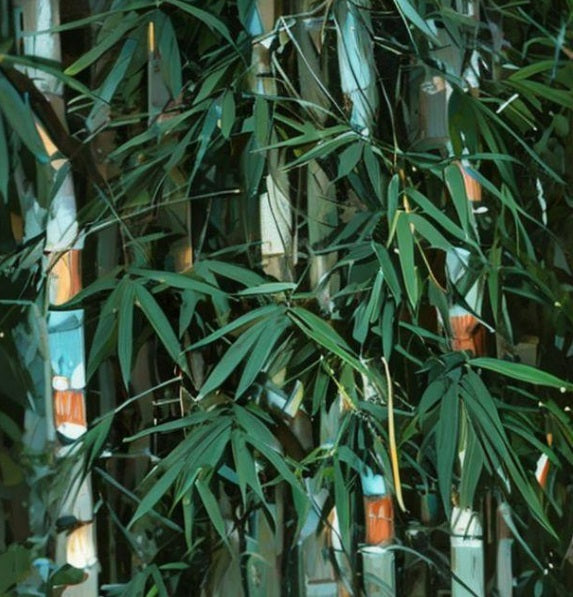
Tropical Bamboo Seeds
Our curated selection of tropical bamboo seeds best suited for planting in...

